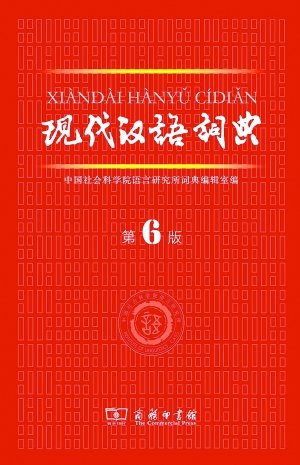Scholars infuriated by dictionary's use of English
 0 Comment(s)
0 Comment(s) Print
Print E-mail Shanghai Daily, August 30, 2012
E-mail Shanghai Daily, August 30, 2012
 |
|
Scholars infuriated by dictionary's use of English |
An editor has come under fire over the inclusion of 239 English words, mostly acronyms or abbreviations, in the latest edition of the Modern Chinese Dictionary.
She was accused of being disrespectful to the Chinese language and causing it "severe damage."
However, Jiang Lansheng, chief editor of the sixth edition published on July 15, said the additions were to make it easier for people to know the meaning of English words in everyday use, yesterday's Beijing Youth Daily reported.
Jiang was responding to a petition signed by more than 100 scholars from across the country saying the editors had damaged the language and might even have broken the law.
They said printing the English words was encouraging readers to replace Chinese words with English ones. "A Chinese dictionary serves as the standard for the use of the Chinese language. Now that the Chinese dictionary collected English words to replace certain Chinese words, it is a serious damage to the Chinese language," Li Minsheng, a researcher with the Chinese Academy of Social Sciences, was quoted by the newspaper as saying.
The scholars also said adding English violated the Law on Standard Spoken and Written Chinese.
"The adding of English words into the Chinese dictionary indicated that it is normal to allow words of English and other foreign languages to replace Chinese words," Fu Zhengguo, a reporter with People's Daily and a petition organizer, told the newspaper.
Fu said the inclusion of words such as NBA and GDP would result in a language that was a "bizarre mixture of Chinese and English."
Fu said the petition had been submitted to the General Administration of Press and Publication, China's publishing watchdog.
Jiang said she respected the scholars' opinions but added: "Which of our country's laws requires that Chinese dictionaries cannot explain English letters?"
She said: "In people's daily life they meet a lot of English letters such as ATM, GDP and CPI, but how can they know the meaning of those words? That should be the responsibility of a dictionary as a reference book."
"We chose words according to the frequency of their use and relevance to people's daily life," Jiang said. "A reference book collects English words not to encourage others to replace Chinese words, but simply to make it easier for readers to know them."
This year's edition was not the first to include English words. There were 39 in its third edition and more than 120 in the fifth.
"If they keep growing, we could have over 10,000 English entries in 100 years," said Fu, who has proposed that English words should be translated into their Chinese equivalents before including them in the dictionary.
Fu's concerns were not shared by Mei Deming, a professor of the English language at Shanghai International Studies University.
"Language is always developing while absorbing new elements," Mei said.
And at a meeting of linguists in Beijing last night, most agreed with the use of some short English terms. Jinan University's Guo Xi said: "Languages borrow from each other when the two are in contact. A living language must absorb new elements."
Su Peicheng from Beijing University said he couldn't find any laws that said putting English words in Chinese dictionaries illegal.






Go to Forum >>0 Comment(s)